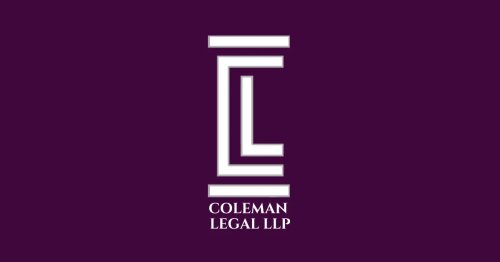Best Constitutional Law Lawyers in Dublin
Share your needs with us, get contacted by law firms.
Free. Takes 2 min.
List of the best lawyers in Dublin, Ireland
About Constitutional Law in Dublin, Ireland
Constitutional Law in Dublin, Ireland is a critical field of legal practice that deals with interpreting, implementing, and understanding the Irish Constitution. The Irish Constitution, Bunreacht na hÉireann, is the fundamental legal document that outlines the framework of the Irish state, its institutions, and the rights of its citizens. Constitutional Law resolves disputes regarding the meaning and application of the Constitution, ensuring that all laws and governmental actions comply with its provisions.
Why You May Need a Lawyer
There are several situations where individuals may require legal assistance in the field of Constitutional Law:
Protection of Rights: If you believe that your constitutional rights have been violated by the state or by another entity, a Constitutional Law lawyer can help defend these rights.
Challenging Legislation: You may need a lawyer to challenge the constitutionality of a particular law or governmental action that you believe is invalid.
Public Law Violations: Resolving disputes related to public law, such as issues of ownership, use of public resources, and state responsibilities.
Electoral Disputes: In cases involving the integrity of elections or the electoral process, legal advice or representation might be necessary.
Government Transparency: Seeking legal action to enforce government transparency and accountability.
Local Laws Overview
Constitutional Law in Dublin, Ireland is characterized by several key aspects and provisions:
Fundamental Rights: The Constitution guarantees certain fundamental rights, such as the right to equality, personal liberty, freedom of speech, and the protection of private property.
Separation of Powers: The Constitution establishes the separation of powers among the legislative, executive, and judicial branches of the government.
Constitutional Amendments: The Constitution can be amended through a referendum, which allows the people to directly participate in changes to the fundamental law of the land.
Judicial Review: The courts have the power of judicial review, allowing them to interpret the Constitution and strike down laws that are found to be unconstitutional.
State Obligations: The Constitution sets out various obligations and responsibilities of the state, including the promotion of social justice and the protection of family and children.
Frequently Asked Questions
What is the role of the Irish Constitution?
The Irish Constitution outlines the fundamental legal framework of the state, defining the structure of government, the powers of its institutions, and the rights of its citizens.
How can I challenge a law's constitutionality?
To challenge the constitutionality of a law, you typically need to bring a case before the courts, often with the assistance of a Constitutional Law lawyer. The courts can then review and determine whether the law aligns with the Constitution.
What are my fundamental rights under the Irish Constitution?
Fundamental rights under the Irish Constitution include personal liberty, equality, freedom of expression, assembly, association, and protection of private property, among others.
Can the Constitution be amended?
Yes, the Constitution can be amended through a referendum, which involves a vote by the people to approve or reject proposed changes.
What is judicial review in Ireland?
Judicial review is the process by which the courts interpret the Constitution and review governmental actions and legislation to ensure they comply with constitutional provisions.
How do I know if my rights have been violated?
If you suspect that your rights have been violated, it is advisable to consult with a Constitutional Law lawyer who can assess your situation and advise you on possible legal remedies.
What legal recourse do I have if my rights are violated?
If your rights are violated, you may seek legal recourse through the courts, including filing for judicial review or seeking damages for the violation of your rights.
Are there time limits for bringing constitutional challenges?
Yes, there are often specific time limits for bringing constitutional challenges. It is important to seek legal advice promptly to ensure you do not miss any crucial deadlines.
Can international human rights laws be applied in Ireland?
International human rights laws can influence Irish law, particularly where Ireland has ratified international treaties. However, the Irish Constitution takes precedence in domestic legal matters.
What should I do if I need legal advice in Constitutional Law?
If you need legal advice in Constitutional Law, the first step is to consult with a qualified Constitutional Law lawyer who can provide guidance based on your specific circumstances.
Additional Resources
For further information and assistance, you may find the following resources helpful:
The Courts Service of Ireland: Provides information on the court system and procedures in Ireland.
The Law Society of Ireland: Offers resources and support for solicitors and the public, including finding a qualified lawyer.
The Irish Human Rights and Equality Commission: Works to protect human rights and promote equality in Ireland.
The Citizens Information Board: Provides comprehensive information on public services and entitlements in Ireland.
Next Steps
If you need legal assistance in Constitutional Law, consider taking the following steps:
Consult with a Lawyer: Find and consult with a qualified Constitutional Law lawyer to discuss your case and receive professional advice.
Gather Evidence: Collect any relevant documents, correspondence, and evidence related to your situation to support your case.
Stay Informed: Stay informed about your rights and any developments in Constitutional Law that may impact your case.
Follow Legal Procedures: Adhere to any legal procedures and timeframes outlined by your lawyer to ensure your case progresses smoothly.
Seek Support: Utilize additional resources and organizations for support and information throughout your legal journey.
Lawzana helps you find the best lawyers and law firms in Dublin through a curated and pre-screened list of qualified legal professionals. Our platform offers rankings and detailed profiles of attorneys and law firms, allowing you to compare based on practice areas, including Constitutional Law, experience, and client feedback.
Each profile includes a description of the firm's areas of practice, client reviews, team members and partners, year of establishment, spoken languages, office locations, contact information, social media presence, and any published articles or resources. Most firms on our platform speak English and are experienced in both local and international legal matters.
Get a quote from top-rated law firms in Dublin, Ireland — quickly, securely, and without unnecessary hassle.
Disclaimer:
The information provided on this page is for general informational purposes only and does not constitute legal advice. While we strive to ensure the accuracy and relevance of the content, legal information may change over time, and interpretations of the law can vary. You should always consult with a qualified legal professional for advice specific to your situation.
We disclaim all liability for actions taken or not taken based on the content of this page. If you believe any information is incorrect or outdated, please contact us, and we will review and update it where appropriate.











